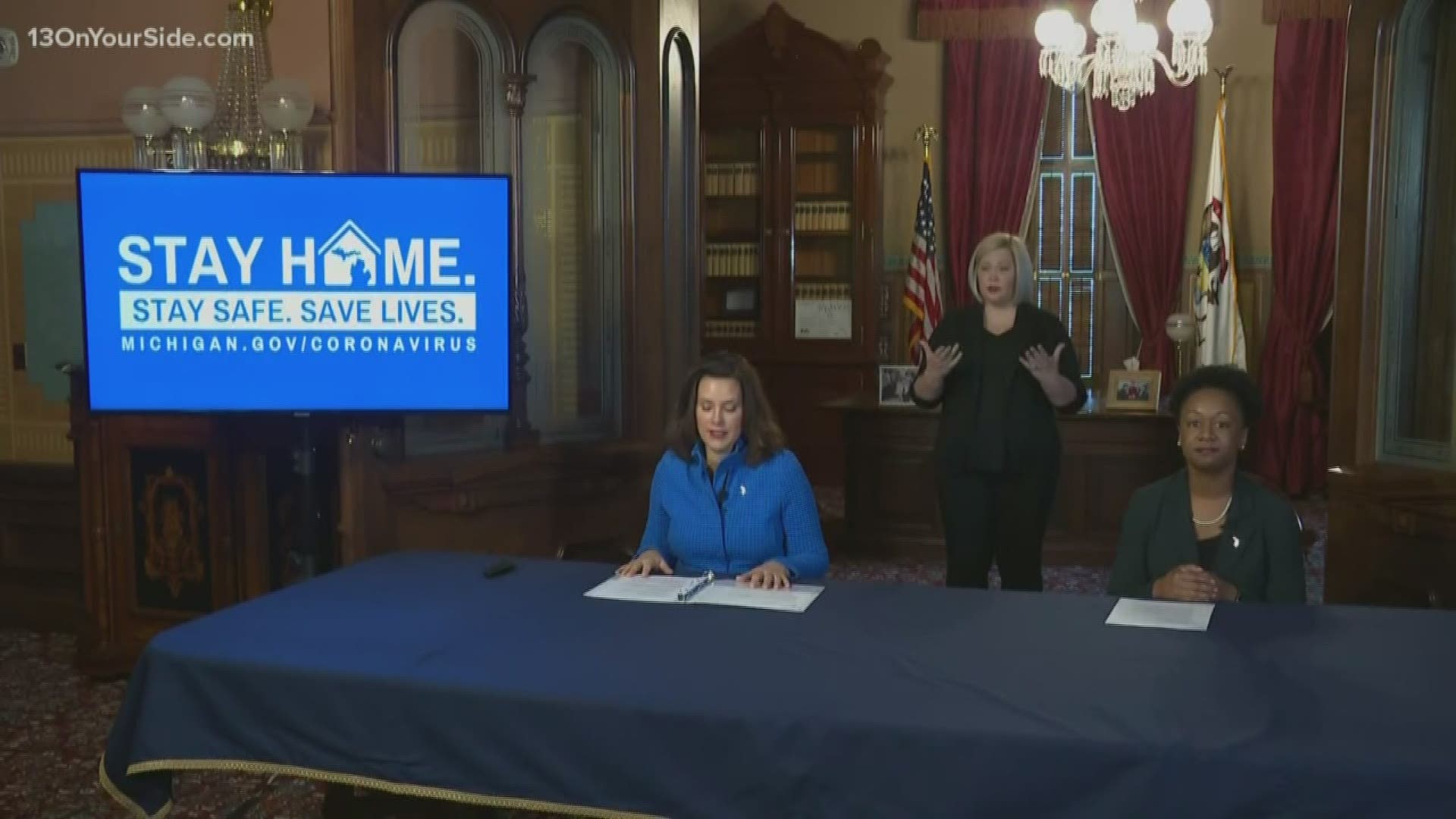LANSING, Mich — The Michigan Attorney General's Office has established a Know Your Employment Rights section on the it's website to provide information and answers to questions about the legal rights of employees and employers under Gov. Gretchen Whitmer’s Stay Home, Stay Safe executive order.
The website also provides information on which types of employees are considered “critical infrastructure workers” under the order, and therefore permitted to work outside home, as well as frequently asked questions about employee rights and employer responsibilities, and suggested practices for law enforcement and prosecutors.
The following is a list of categories is considered to be critical and essential:
- Healthcare/Public Heath
- Law Enforcement, Public Safety and First Responders
- Food and Agriculture
- Energy
- Waste and Wastewater
- Transportation and Logistics
- Public Works
- Communications and Information Technology
- Critical Manufacturing
- Hazardous Materials
- Financial Services
- Defense Industrial Base
- Chemical
- Other Community-based Government Operations and Essential Functions
The Stay Home, Stay Safe order was issued to slow the spread of COVID-19 and to protect the public health and welfare of Michigan residents. Willful violations of the order can result in a $500 fine and/or 90 days in jail for each violation.
“The executive order and other state laws provide certain protections for employees during this rapidly changing landscape, and it is important that every resident understands their rights," Attorney General Dana Nessel said. “Certainly, as this pandemic continues new challenges and questions will arise, but we are confident there is nothing we can’t overcome when we all work together.”
Under the governor's Stay Home, Stay Safe order, in-person work that is not necessary to sustain or protect life is prohibited. Unless an employee has been designated by his or her employer as a critical infrastructure worker, that employee cannot be compelled to work outside home. A violation of this executive order is a misdemeanor and should be reported to local law enforcement.
Further, Michigan law prohibits employers from discriminating against employees for exercising any right that may be afforded to them under the Michigan Occupational Safety and Health Act (MIOSHA). In general, Michigan law requires employers to provide every employee with “a place of employment that is free from recognized hazards that are causing, or are likely to cause, death or serious physical harm to the employee.”
If an employee believes their employer is failing to take the proper precautions to protect employees from exposure to various threats, they can learn how to file a complaint with MIOSHA online.
A summary of the activities people can and cannot do under the Stay Home, Stay Safe executive order can be found online here, the text of the order can be found here, and answers to frequently asked questions about the order can be found here.
►The Attorney General’s Know Your Employment Rights section on the website.
STATE RECOMMENDATIONS FOR COVID-19
Patients with confirmed infection have reportedly had mild to severe respiratory illness with symptoms of:
- Fever
- Cough
- Shortness of breath
The best prevention for viruses, such as influenza, the common cold or COVID-19 is to:
- If you think you have been exposed to COVID-19, call your health care provider. If you do not have a health care provider, call the nearest hospital.
- Wash your hands often with soap and warm water for 20 seconds. If not available, use hand sanitizer.
- Avoid touching your eyes, nose, or mouth with unwashed hands.
- Cover your mouth and nose with a tissue or upper sleeve when coughing or sneezing.
- Avoid contact with people who are sick.
- If you are sick, stay home, and avoid contact with others.
- Stay at least 6 feet away from others when in a public setting.
MORE CORONAVIRUS NEWS:
RELATED VIDEO:
►Make it easy to keep up to date with more stories like this. Download the 13 ON YOUR SIDE app now.
Have a news tip? Email news@13onyourside.com, visit our Facebook page or Twitter. Subscribe to our YouTube channel.




